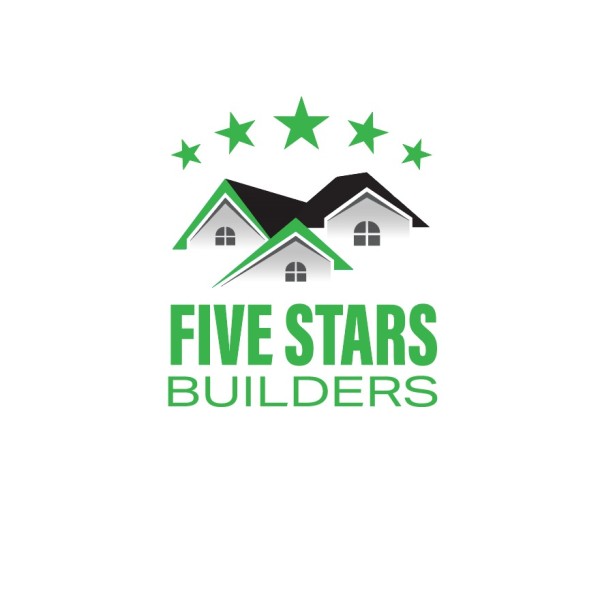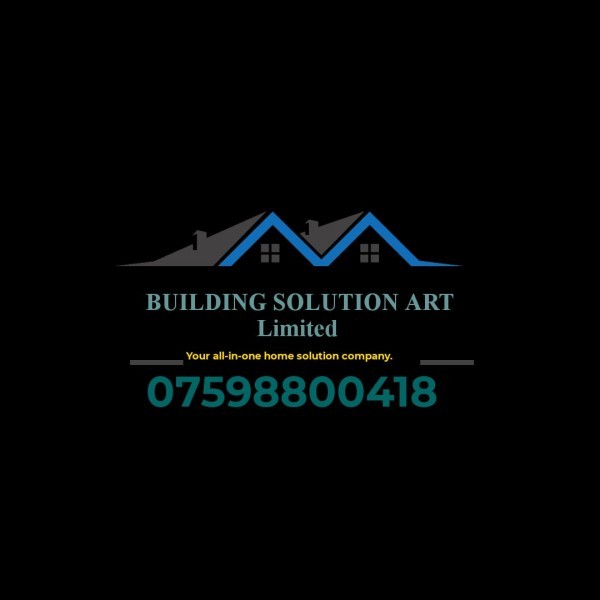Loft Conversions in Ilford
Welcome to Impress Europe Ltd, your go-to construction experts in Chipping Barnet, Barnet, Lo... read more »
Welcome to Five Stars Builders Ltd, your premier choice for exceptional building services in... read more »
RF Property Maintenance & Building Ltd is a premier choice for all your building and maintenance needs in Perry... read more »
Dar Construction Services Ltd is a distinguished construction company nestled in Colyers, proudly serving the bustling c... read more »
A&A Best At First Ltd is your go-to solution for exceptional building and renovation services in Chingford Hatch... read more »
Welcome to The Likeable Craftsmen, your go-to experts for all things home improvement in Potters Bar and across Hertfordshire,... read more »
Eric Lala Construction Ltd is a premier construction company based in Addiscombe, renowned for its exceptional services... read more »
Welcome to Building Solution Art Limited, your premier choice for top-notch building services in Bloomsbury and the wider Camden area of... read more »
Welcome to Nikollas Developments Ltd, your go-to experts for all construction needs in Higham Hill and the vibrant Waltham Forest area of... read more »
Welcome to A A Bathroom And Plumbing, your premier choice for builders, bathroom installation, kitchen installation, flooring, and proper... read more »
Welcome to Christian Construction Services Ltd, your trusted partner for top-notch construction services in Church End, Barnet,... read more »
SMR Building Contractors Ltd, nestled in the vibrant area of Bromley Park, stands as a beacon of excell... read more »
Welcome to AG Partners LTD, your go-to experts for builders, carpenters, and property maintenance services in... read more »
Welcome to Wood And Craft Kitchens, your premier choice for expert kitchen fitters and builders in South Tottenham, serving the vibrant c... read more »
Welcome to JC Construction Group Ltd, the premier choice for extension builders, loft conversions, and more in Langdon Hills and across E... read more »
Welcome to Miraclepaint & Construction, your go-to experts for all building and renovation needs in Frognal, Camden, London. As a leading... read more »
Welcome to Haze Construction Limited, your go-to experts for all building needs in Central London and the City of London. With a rich his... read more »
Welcome to RN Building Services Ltd, your trusted partner for all building needs in Warley and across Essex. As a family-run business wit... read more »
G R Maintenance Ltd is a premier property maintenance company based in the vibrant area of Bermondsey, offering a compre... read more »
MS Property Service is a premier tradespeople business located in the heart of Welling, offering a comp... read more »
Search Loft Conversions in places nearby
Understanding Loft Conversions in Ilford
Loft conversions in Ilford have become a popular choice for homeowners looking to maximise their living space without the hassle of moving. With the growing demand for housing and the desire to make the most of existing properties, converting a loft can be an excellent way to add value and functionality to your home. In this article, we'll explore the ins and outs of loft conversions in Ilford, providing you with a comprehensive guide to making the most of your attic space.
Why Consider a Loft Conversion?
Loft conversions offer a myriad of benefits, making them an attractive option for many homeowners. Firstly, they can significantly increase the value of your property. By adding an extra bedroom or a functional space, you can enhance your home's appeal to potential buyers. Additionally, loft conversions are often more cost-effective than building an extension, as they utilise existing space within the home.
Moreover, a loft conversion can provide much-needed additional space for growing families or those who need a home office. With the rise of remote working, having a dedicated workspace at home has become increasingly important. A loft conversion can offer a quiet and private area, perfect for productivity.
Types of Loft Conversions
There are several types of loft conversions to consider, each with its own set of advantages and considerations. The most common types include:
- Dormer Loft Conversion: This is the most popular type of loft conversion, which involves extending the existing roof to create additional headroom and floor space. Dormer conversions are versatile and can be adapted to suit most property types.
- Mansard Loft Conversion: Typically found in urban areas, this type of conversion involves altering the structure of the roof to create a flat roof with a steep back wall. Mansard conversions offer maximum space but may require planning permission.
- Hip to Gable Loft Conversion: Ideal for semi-detached or detached houses with a hipped roof, this conversion involves extending the sloping side of the roof to create a vertical gable wall, providing more internal space.
- Velux Loft Conversion: Also known as a roof light conversion, this option involves installing Velux windows into the existing roofline without altering the structure. It's the most cost-effective and least disruptive option but offers less additional space.
Planning Permission and Building Regulations
Before embarking on a loft conversion in Ilford, it's crucial to understand the planning permission and building regulations involved. In many cases, loft conversions fall under permitted development rights, meaning you won't need planning permission. However, there are exceptions, especially if your property is in a conservation area or if the conversion involves significant structural changes.
Building regulations, on the other hand, are mandatory for all loft conversions. These regulations ensure that the conversion is safe and structurally sound. Key areas covered by building regulations include fire safety, insulation, and structural integrity. It's advisable to work with a professional architect or builder who can guide you through the process and ensure compliance.
Choosing the Right Professionals
Undertaking a loft conversion is a significant project, and choosing the right professionals is crucial to its success. Start by researching local architects and builders with experience in loft conversions. Look for reviews and testimonials from previous clients to gauge their reliability and quality of work.
It's also important to obtain multiple quotes and compare them carefully. While cost is a factor, it's equally important to consider the expertise and reputation of the professionals you choose. A well-executed loft conversion can add substantial value to your home, so investing in skilled professionals is a wise decision.
Designing Your Loft Space
The design of your loft conversion will largely depend on your needs and the type of conversion you choose. Consider how you intend to use the space and what features are essential. For instance, if you're creating a bedroom, you'll need to think about storage solutions and natural light.
Working with an architect can help you make the most of the available space. They can offer creative solutions to maximise functionality and aesthetics. Whether you prefer a modern, minimalist design or a cosy, traditional look, a professional can help bring your vision to life.
Cost Considerations
The cost of a loft conversion in Ilford can vary significantly depending on the type of conversion, the size of the space, and the materials used. On average, you can expect to pay between £20,000 and £50,000 for a standard loft conversion. However, more complex conversions, such as a mansard or hip to gable, may cost more.
It's essential to budget for additional expenses, such as planning fees, building regulation costs, and any unforeseen issues that may arise during construction. Having a contingency fund can help you manage unexpected costs and ensure the project stays on track.
Maximising Natural Light
One of the key challenges in a loft conversion is ensuring adequate natural light. Velux windows are a popular choice, as they can be installed directly into the roofline, providing ample daylight. Consider the orientation of your home and the position of the sun throughout the day to maximise light exposure.
In addition to windows, consider using light colours and reflective surfaces in your design to enhance the brightness of the space. Mirrors, glass furniture, and light-coloured flooring can all contribute to a brighter, more inviting loft space.
Insulation and Energy Efficiency
Proper insulation is vital in a loft conversion to ensure the space is comfortable and energy-efficient. Insulating the roof, walls, and floors can help regulate temperature and reduce energy bills. There are various insulation materials available, including fibreglass, foam, and natural options like sheep's wool.
Incorporating energy-efficient features, such as LED lighting and double-glazed windows, can further enhance the sustainability of your loft conversion. These features not only benefit the environment but can also add value to your property.
Addressing Structural Challenges
Loft conversions often involve structural changes, such as reinforcing the floor or altering the roof. It's essential to address any structural challenges early in the planning process to avoid complications later on. A structural engineer can assess the existing structure and recommend necessary reinforcements.
Common structural considerations include the load-bearing capacity of the floor, the stability of the roof, and the placement of supporting beams. Ensuring the structural integrity of your loft conversion is crucial for safety and longevity.
Incorporating Storage Solutions
Maximising storage is a key consideration in any loft conversion. With sloping ceilings and limited space, creative storage solutions are essential. Built-in wardrobes, under-eaves storage, and bespoke shelving can help you make the most of every inch.
Consider multifunctional furniture, such as beds with storage drawers or ottomans that double as seating and storage. These solutions can help keep your loft space organised and clutter-free.
Ensuring Fire Safety
Fire safety is a critical aspect of any loft conversion. Building regulations require specific measures to ensure the safety of the space. This includes installing smoke alarms, providing escape routes, and using fire-resistant materials.
Working with a professional builder can help you navigate these requirements and ensure your loft conversion meets all safety standards. It's essential to prioritise fire safety to protect your home and its occupants.
Adding Personal Touches
Once the structural work is complete, it's time to add personal touches to your loft conversion. Consider your style and preferences when choosing decor and furnishings. Whether you prefer a cosy, rustic feel or a sleek, modern look, your loft space should reflect your personality.
Incorporate elements that make the space uniquely yours, such as artwork, textiles, and decorative accessories. These personal touches can transform your loft conversion into a welcoming and comfortable retreat.
Understanding the Impact on Property Value
Loft conversions can significantly impact the value of your property. By adding an extra bedroom or functional space, you can increase your home's marketability and appeal to potential buyers. However, it's essential to consider the overall cost of the conversion and the potential return on investment.
Consulting with a local estate agent can provide valuable insights into the impact of a loft conversion on property value in Ilford. They can offer guidance on the most desirable features and help you make informed decisions about your conversion.
Frequently Asked Questions
- Do I need planning permission for a loft conversion in Ilford? In most cases, loft conversions fall under permitted development rights, but it's essential to check with your local council, especially if your property is in a conservation area.
- How long does a loft conversion take? The duration of a loft conversion can vary, but on average, it takes between 6 to 8 weeks to complete.
- Can I convert any loft? Not all lofts are suitable for conversion. Factors such as head height, roof structure, and access can impact the feasibility of a conversion.
- What is the most cost-effective type of loft conversion? A Velux loft conversion is typically the most cost-effective option, as it involves minimal structural changes.
- How can I ensure my loft conversion is energy-efficient? Proper insulation, energy-efficient windows, and LED lighting can enhance the energy efficiency of your loft conversion.
- Will a loft conversion add value to my home? Yes, a well-executed loft conversion can increase the value of your property, especially if it adds an extra bedroom or functional space.
Loft conversions in Ilford offer a fantastic opportunity to enhance your living space and add value to your home. By understanding the different types of conversions, planning requirements, and design considerations, you can create a beautiful and functional space that meets your needs. With careful planning and the right professionals, your loft conversion can be a rewarding investment in your property's future.
Send a message

























